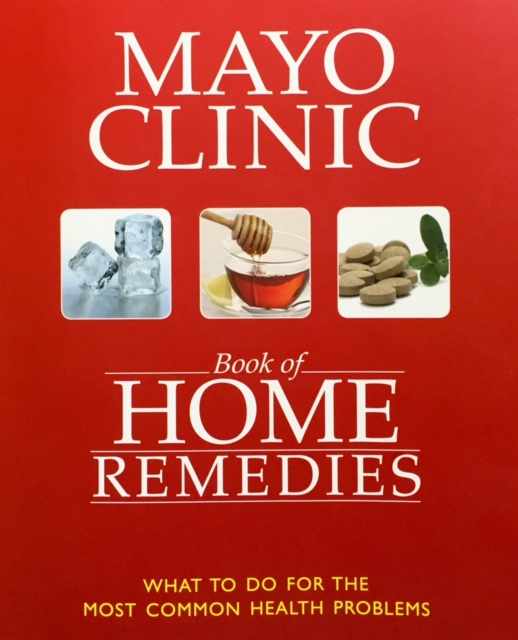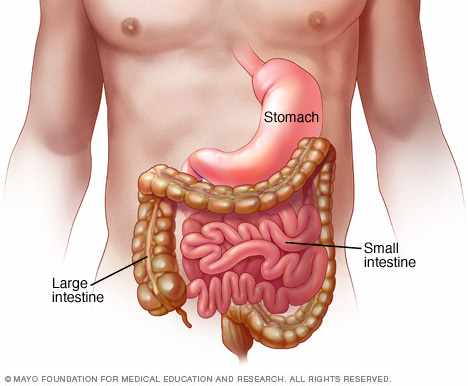-
Featured News
Home Remedies: Struggling with stomach flu
What some people commonly refer to as stomach flu is also known as viral gastroenteritis. It's an intestinal infection marked by watery diarrhea, abdominal cramps, nausea or vomiting, and sometimes fever.
The most common way to develop viral gastroenteritis is through contact with an infected person or by ingesting contaminated food or water. If you're otherwise healthy, you'll likely recover without complications. But for infants, older adults and people with compromised immune systems, viral gastroenteritis can be deadly.
Symptoms include:
- Watery, usually nonbloody diarrhea — bloody diarrhea usually means you have a different, more severe infection
- Abdominal cramps and pain
- Nausea, vomiting or both
- Occasional muscle aches or headache
- Low-grade fever
There's no effective treatment for viral gastroenteritis, so prevention is key. In addition to avoiding food and water that may be contaminated, thorough and frequent hand-washing can be your best defense. If you get the stomach flu, staying hydrated is extremely important.
The stomach, small intestine and large intestine (colon) are part of your digestive tract, which processes foods you eat. Viral gastroenteritis is an inflammation of these organs caused by a virus.
To help keep yourself more comfortable and prevent dehydration while you recover, try the following:
- Let your stomach settle. Stop eating solid foods for a few hours.
- Try sucking on ice chips or taking small sips of water. You might also try drinking clear soda, clear broths or noncaffeinated sports drinks. Drink plenty of liquid every day, taking small, frequent sips.
- Ease back into eating. Gradually begin to eat bland, easy-to-digest foods, such as soda crackers, toast, gelatin, bananas, rice and chicken. Stop eating if your nausea returns.
- Avoid certain foods and substances until you feel better. These include dairy products, caffeine, alcohol, nicotine, and fatty or highly seasoned foods.
- Get plenty of rest. The illness and dehydration may have made you weak and tired.
- Be cautious with medications. Use many medications, such as ibuprofen (Advil, Motrin IB, others), sparingly if at all. They can make your stomach more upset. Use acetaminophen (Tylenol, others) cautiously; it sometimes can cause liver toxicity, especially in children. Don't give aspirin to children or teens because of the risk of Reye's syndrome, a rare, but potentially fatal disease. Before choosing a pain reliever or fever reducer discuss with your child's pediatrician.
For infants and children
When your child has an intestinal infection, the most important goal is to replace lost fluids and salts. These suggestions may help:
- Help your child rehydrate. Give your child an oral rehydration solution, available at pharmacies without a prescription. Talk to your doctor if you have questions about how to use it. Don't give your child plain water — in children with gastroenteritis, water isn't absorbed well and won't adequately replace lost electrolytes. Avoid giving your child apple juice for rehydration — it can make diarrhea worse.
- Get your child back to a normal diet slowly. Gradually introduce bland, easy-to-digest foods, such as toast, rice, bananas and potatoes.
- Avoid certain foods. Don't give your child dairy products or sugary foods, such as ice cream, sodas and candy. These can make diarrhea worse.
- Make sure your child gets plenty of rest. The illness and dehydration may have made your child weak and tired.
- Avoid giving your child over-the-counter anti-diarrheal medications, unless advised by your doctor. They can make it harder for your child's body to eliminate the virus.
If you have a sick infant, let your baby's stomach rest for 15 to 20 minutes after vomiting or a bout of diarrhea, then offer small amounts of liquid. If you're breast-feeding, let your baby nurse. If your baby is bottle-fed, offer a small amount of an oral rehydration solution or regular formula. Don't dilute your baby's already-prepared formula.
The Mayo Clinic Book of Home Remedies provides answers you need to take care of common health problems on your own. This reference covers 120 of today’s common health problems in an easy-to-follow, A-to-Z format. Learn what you can do for yourself and when to seek medical attention.










